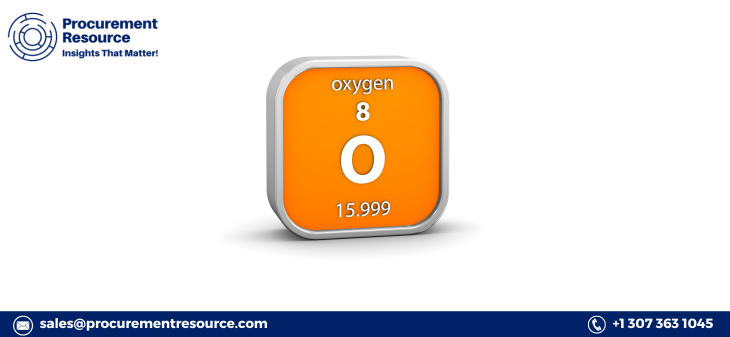Introduction
Choosing a self-assessment tax accountant in Glasgow is a critical decision that can significantly impact your financial well-being. Whether you’re a freelancer, small business owner, or a high-earner, navigating the complexities of self-assessment tax returns can be challenging. A competent tax accountant can simplify this process, ensuring compliance and optimizing your tax situation.
Understanding Self-Assessment Tax
Self-assessment tax is a system used by HM Revenue and Customs (HMRC) to collect Income Tax. It requires individuals and businesses to report their income, expenses, and other pertinent financial information. If you’re self-employed, a company director, have foreign income, or earn significant income from savings, investments, or property, you’re likely required to file a self-assessment tax return.
Why Hire a Self-Assessment Tax Accountant?
A professional accountant brings expertise to the table, helping you navigate tax laws, claim all eligible deductions, and avoid penalties. They can also offer strategic advice to minimize your tax liability. Filing errors can lead to hefty fines and interest charges. An experienced accountant ensures accuracy and compliance, helping you avoid common pitfalls such as missed deadlines and incorrect calculations.
Qualities of a Good Tax Accountant
Look for accountants who are members of recognized professional bodies like the Association of Chartered Certified Accountants (ACCA) or the Institute of Chartered Accountants of Scotland (ICAS). These credentials indicate a high level of professionalism and expertise. Experience matters. An accountant with a solid track record in handling self-assessment tax returns will be more adept at identifying potential issues and opportunities.
Specialization in Self-Assessment
Ensure the accountant specializes in self-assessment tax returns. This specialization means they are up-to-date with the latest tax laws and regulations affecting your specific situation. Start by asking for recommendations from friends, family, or colleagues. Online directories and professional networks can also provide a list of qualified accountants in Glasgow.
Checking Reviews and Testimonials
Customer reviews and testimonials offer insight into an accountant’s reputation and client satisfaction. Look for consistent positive feedback and any red flags in their service history. Membership in professional bodies ensures adherence to ethical standards and continuous professional development. Verify the accountant’s memberships and standing within these organizations.
Verifying Qualifications
Don’t hesitate to ask for proof of qualifications. Reputable accountants will be transparent about their educational background and certifications. An accountant with several years of experience is likely to have a deeper understanding of tax laws and practical solutions for various financial situations.
Types of Clients Handled
Ask about the types of clients they have worked with. An accountant experienced with clients similar to you is more likely to understand your specific needs and challenges. Accountants may charge hourly rates, fixed fees, or a combination of both. Understand their fee structure and what services are included to avoid any surprises.
Getting Value for Money
While cost is a factor, it shouldn’t be the only consideration. A more expensive accountant with a proven track record may save you more money in the long run through expert advice and efficient tax management. Clear and timely communication is crucial. Your accountant should be able to explain complex tax matters in understandable terms and keep you informed about your tax situation.
Availability and Responsiveness
Assess how responsive they are during initial communications. An accountant who is easily reachable and prompt in responding to queries is likely to provide better ongoing support. Accountants using up-to-date software can provide more accurate and efficient service. Ask about the tools they use for bookkeeping, tax preparation, and client communication.
Security Measures for Data Protection
Ensure your accountant has robust security measures in place to protect your sensitive financial data. This includes secure data storage and transmission practices. Your accountant should be someone you feel comfortable discussing your finances with. A good personal rapport can lead to better communication and more tailored advice.
Importance of Trust and Comfort
Trust is foundational in any professional relationship, especially when it involves your finances. Make sure you feel confident in their integrity and ability to handle your tax matters.
Key Questions to Ask Potential Accountants
-
What experience do you have with self-assessment tax returns?
-
How do you stay current with tax laws and regulations?
-
Can you provide references from clients with similar needs?
Understanding Their Approach and Process
Understanding how they approach tax preparation and what their process involves can help you determine if their methods align with your expectations. Evaluate all the information gathered, considering the accountant’s experience, qualifications, communication style, and fees.Finally, trust your instincts. If something feels off, it might be worth continuing your search until you find the right fit.
Preparing for Your First Meeting
Bring necessary documents such as previous tax returns, income statements, expense records, and any correspondence from HMRC. This will help your accountant get a clear picture of your financial situation. Discuss your goals and expectations for the engagement. Clear communication from the outset will set the stage for a productive relationship.
Conclusion
Choosing the best self-assessment tax accountant in Glasgow involves careful consideration of their qualifications, experience, communication skills, and personal compatibility. By following these steps, you can find a professional who not only meets your needs but also helps you navigate the complexities of self-assessment tax with confidence.
FAQs
What is the cost range for a self-assessment tax accountant in Glasgow?
The cost can vary widely depending on the accountant’s experience and the complexity of your tax situation. Generally, you can expect to pay between £150 to £500 for self-assessment tax services.
How often should I meet with my tax accountant?
It’s advisable to meet at least once a year, typically before the tax filing deadline. However, more frequent meetings may be necessary if your financial situation changes or if you require ongoing tax planning advice.
Can I change my accountant if I’m not satisfied?
Yes, you can change your accountant at any time. It’s important to communicate your reasons clearly and ensure a smooth transition of your financial records to the new accountant.
What happens if I miss the self-assessment tax deadline?
Missing the deadline can result in penalties and interest charges. It’s crucial to file your return on time or request an extension if needed.
How can I ensure my data is safe with my accountant?
Ensure your accountant follows robust security practices, including secure data storage, encryption, and confidentiality agreements. Discuss their data protection measures before engaging their services.




